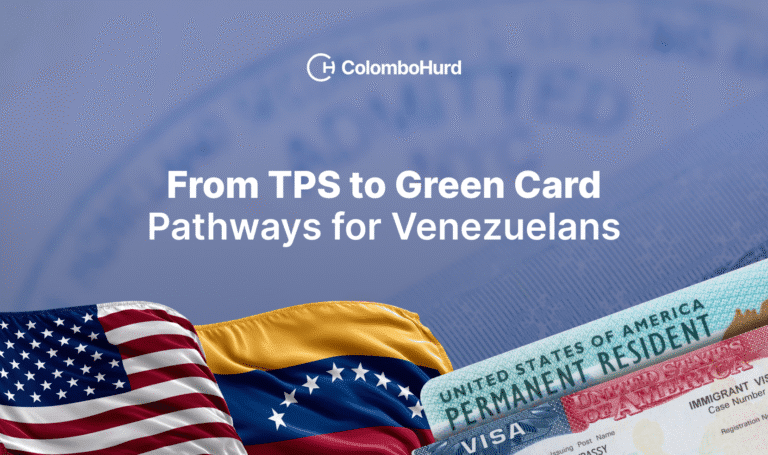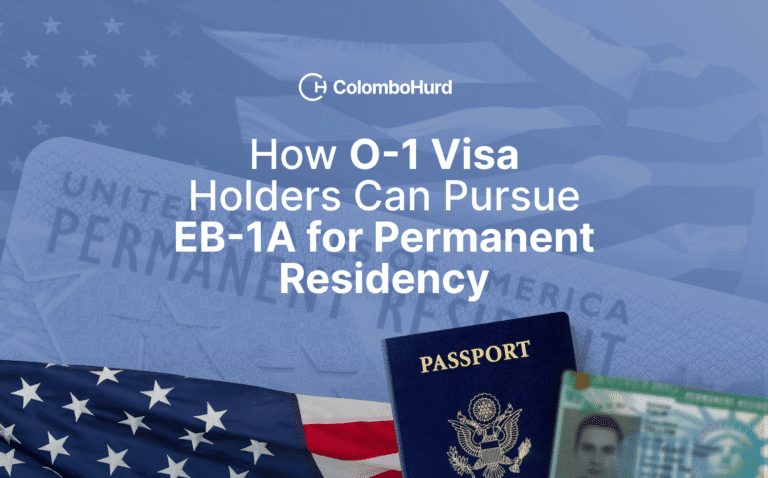Temporary Protected Status (TPS) has served as a lifeline for Venezuelans living in the United States since 2021, offering work authorization and protection from deportation. Recent developments in court and at the Department of Homeland Security (DHS) have made the future of Venezuelan TPS uncertain, but the most recent court decision provides momentary relief.
On September 5, 2025, U.S. District Judge Edward Chen in San Francisco blocked the Trump administration from ending TPS for more than 1 million people from Haiti and Venezuela. For Venezuelans, the ruling means that approximately 600,000 individuals whose protections had expired in April or were set to expire on September 10 now have the right to stay and work in the United States.
While this ruling offers renewed stability for Venezuelan TPS holders, it does not change the fact that TPS is not permanent. The DHS has already announced its plans to appeal, and future court rulings could once again put TPS holders at risk.
With TPS in limbo, many Venezuelans are looking beyond temporary status. The most practical long-term strategy is to explore permanent residency through employment-based options such as the EB-1A for individuals with extraordinary ability and the EB-2 National Interest Waiver (NIW) categories. These pathways can lead to green cards and more lasting security in the United States.
Judge Chen’s decision may provide Venezuelan TPS holders with some additional time and stability though potentially limited by any future higher Court action. During this period, TPS holders may consider exploring long-term immigration options, collecting documentation, and understanding eligibility requirements for different pathways. Preparing while TPS remains in effect may help avoid complications if protections are challenged again in the future.
“TPS was never designed to be permanent,” explained Colombo & Hurd Immigration Attorney Diego Menéndez-Estrada. “Venezuelans relying on TPS may benefit from looking beyond temporary protections and building a pathway to a green card that gives them stability and security in the United States.”
Understanding TPS
TPS is a humanitarian program created by Congress in 1990. It allows nationals of countries experiencing armed conflict, natural disasters, or other extraordinary conditions to remain temporarily in the United States. TPS provides protection against deportation and eligibility for work authorization, but it does not create a direct path to permanent residency or citizenship.
For Venezuelans, two designations were made:
- 2021 TPS designation: Still in effect until September 10, 2025. DHS has announced its intent to terminate this designation, but termination cannot take effect until at least 60 days after the publication of a notice in the Federal Register (not yet published). During those 60 days, TPS and work authorization are automatically extended.
- 2023 TPS redesignation: Initially extended through October 2026 but terminated effective April 7, 2025. Nonetheless, some people who hold TPS under this designation retain TPS and/or work authorization.
The Attempt to End Venezuelan TPS
In early 2025, the DHS under Secretary Noem moved to end protections for Venezuelans. On February 5, 2025, DHS formally terminated the 2023 designation. On March 31, 2025, a federal district court blocked that termination, finding it likely unlawful because DHS lacked authority to vacate a prior TPS extension and citing evidence of discriminatory intent. However, on May 19, 2025, the U.S. Supreme Court stayed that order, allowing the termination to take effect while the case proceeds.
On August 29, 2025, the Ninth Circuit Court of Appeals unanimously agreed with the lower court that DHS’s actions were illegal. Most recently, on September 5, 2025, U.S. District Judge Edward Chen issued a separate ruling restoring protections for Haitians and Venezuelans. Judge Chen explained that the Department of Homeland Security’s actions were “arbitrary and capricious” and exceeded the Secretary’s legal authority. He criticized the move as a break from decades of practice in which administrations of both parties had carefully studied conditions and consulted other agencies before deciding on TPS designations. According to Judge Chen, forcing Venezuelans and Haitians back at this moment would return them to “conditions so dangerous that even the State Department advises against travel.”
However, the U.S. Supreme Court’s earlier stay means the broader legal battle remains unresolved, and DHS’s termination orders could still be enforced depending on the outcome of future appeals.
The bottom line:
- The 2023 TPS designation, which had been terminated earlier this year with only narrow exceptions under the May 30, 2025 order, is now restored by Judge Chen’s September 5 ruling, giving protections back to hundreds of thousands of Venezuelans.
- The 2021 TPS designation also remains in effect and is now reinforced by the same ruling. It will continue until at least September 10, 2025, and automatically extend for 60 days beyond any official termination notice in the Federal Register.
- While both the Ninth Circuit and Judge Chen have issued rulings favorable to TPS holders, the legal battle is not over. The U.S. Supreme Court’s stay means DHS’s authority to terminate TPS could still be enforced depending on the outcome of future appeals.
- The scope of the ruling is also broader than previously reported. In addition to restoring protections for an estimated 600,000 Venezuelans, it secures TPS for roughly 500,000 Haitians, bringing the total number of people directly affected to about 1.1 million. This scale underscores the importance of the court’s intervention.
From TPS to Green Card: Employment-Based Options
Although TPS has been restored, it remains temporary. Venezuelans can look to employment-based immigration as a more permanent solution. For qualified TPS holders, two categories stand out:
- EB-1A (Extraordinary Ability): Reserved for individuals who can demonstrate sustained national or international recognition in their field. This standard is very high and only a small percentage of applicants succeed, but for those who qualify, EB-1A can offer faster visa availability and a direct path to a green card.
- EB-2 NIW (National Interest Waiver): Designed for professionals with advanced degrees or exceptional ability whose work benefits the United States. Unlike traditional EB-2 cases, the EB-2 NIW does not require employer sponsorship or labor certification. Instead, applicants must show both their qualifications and how their contributions serve the U.S. national interest. This makes the EB-2 NIW especially relevant for Venezuelans pursuing careers, entrepreneurial projects, or public-interest initiatives in the U.S.
Both EB-1A and EB-2 NIW allow for self-petitioning, meaning applicants do not need an employer to sponsor them. For Venezuelan TPS holders, this flexibility is essential, particularly for those who can show the skills, achievements, and plans needed to qualify for a green card.
EB-1A vs. EB-2 NIW for TPS Holders
| Category | EB-1A (Extraordinary Ability) | EB-2 NIW (National Interest Waiver) |
| Eligibility | Internationally recognized achievements; top of the field | Advanced degree or exceptional ability; work must have substantial merit and national importance |
| Employer Sponsorship | Not required (self-petition allowed) | Not required (self-petition allowed) |
| Labor Certification (PERM) | Waived | Waived |
| Requirements | Must show evidence of extraordinary ability through sustained national or international acclaim (e.g., awards, publications, media, leadership roles) | Must show qualifications (advanced degree or exceptional ability) plus satisfy the three-prong Dhanasar test: substantial merit, applicant well-positioned, and U.S. national interest |
| Best For | Scientists, artists, researchers, executives, and athletes with elite achievements | Professionals, entrepreneurs, researchers, and others with strong U.S. impact cases |
Why the Venezuelan TPS Decision Matters for Employment-Based AOS
Some Venezuelans with TPS may already be eligible to apply for Adjustment of Status (AOS), the process of obtaining permanent residency from within the United States. In certain cases, TPS holders with pending asylum applications may also be able to move forward toward residency without leaving the country, as long as their asylum cases remain active with USCIS.
For many others, foreign travel and re-entry using a TPS-based travel document (Form I-512T) is typically required to create the lawful admission needed for AOS. While this step can be critical, it is only one of several strategies available.
“Employment-based petitions, including EB-1A and EB-2 NIW, can serve as potential routes to permanent residency for Venezuelan TPS holders,” said Mr. Menéndez-Estrada. “With the right planning, TPS can serve as a bridge to permanent residency and, eventually, citizenship.”
Identifying the best pathway, whether through direct AOS eligibility, a pending asylum application, or use of travel authorization, requires careful evaluation of each individual’s situation.
Considering Next Steps for Moving from TPS to Green Card
Although the courts continue to debate the future of TPS, the fact remains: TPS was never meant to be permanent. Venezuelans interested in long-term stability may want to examine employment-based immigration categories such as EB-1A or EB-2 NIW. Adjustment of Status under these categories can, in some cases, provide a path to permanent residency and eventually citizenship. Eligibility for these pathways depends on individual circumstances, and individuals should carefully review eligibility requirements and documentation needs before proceeding.





